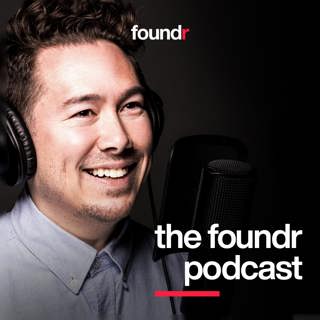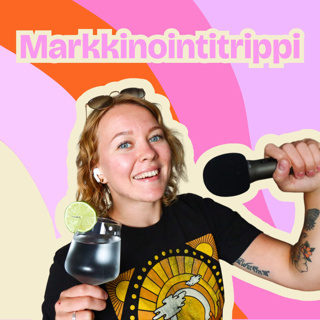
100: 100th Episode Switch up! Nathan Chan of Foundr Magazine is interviewed by Dan Norris on the Future of Foundr, Lessons Learned & the Direction of The Company
On November 9, 2013, I released the first episode of the Foundr Podcast. It was with Fabio Rosati, then-CEO of Elance. To be completely honest, I wasn't quite sure what I was trying to achieve by releasing a podcast. At the time, it was just another way for us to give to our community, by releasing the audio of our interviews for free. Fast-forward to today and I can't believe we're at our 100th episode! It's flown by and so much has changed since. But the entire time I've kept in mind this piece of advice from my friend Daniel DiPiazza: "Keep producing content on a consistent basis every single week, keep getting next-level epic interviews, and people will come.” He was totally right. In the years since that first episode, we've managed to become one of the top 10 podcasts for business, we have over 70,000 downloads a month, and it's done wonders for our business. So to mark this occasion, we decided to do something a little different in this episode. Instead of me asking all the questions, I'll be the one getting interviewed for a change! My good friend Dan Norris of WP Curve took over as host, and we took a look back at how Foundr started three years ago and how far we've come since then. I'm going to share with you the story behind Foundr, how it all started, and the strategies I used to start the company on the path it's on today. I also took a crack at some predictions about where we'll be by our 200th episode. In this interview you will learn: The story behind Foundr and how it all started Who my biggest sources of inspiration are and how they shaped Foundr's vision My strategy for pitching and landing interviews with the best entrepreneurs in the world Why you need to focus on design if you want to be successful What's going on behind-the-scenes at Foundr and what's coming next! & much more!
13 Heinä 201656min

99: Building a Product that People LOVE with Janna Bastow of ProdPad
As much as entrepreneurs can go on extolling the virtues of a great marketing strategy or knowing your target customer, at the end of the day, it's all about having something worth selling. No matter how great your advertising campaign may be, if you don't have something that people want to buy then you simply don't have a business. And yet, entrepreneurs all too often tend to gloss over this fact. They'll focus on everything else, but somehow forget to question whether or not their product is a winner, or even if it's a good idea in the first place. This is where Janna Bastow of ProdPad steps in, because she, more than anyone else in the world, knows exactly why effective product management is so instrumental to your startup's success. For Bastow, effective product management is when you're able to find that delicate balance between what's technically feasible, valuable for the customer, and profitable for the business, and define a roadmap on that basis. Ever since launching ProdPad in 2012, a tool that lets startup teams formally gather ideas, pick out the best ones and turn them into profitable products, Bastow has helped hundreds of startups and entrepreneurs in finding out what their perfect product is. More than anyone else, she knows how just difficult this process can be and why you shouldn't take it for granted. In this interview you will learn: What a product manager is and why you need one as part of your startup The best way to talk to customers and figure out what they actually want Step-by-step instructions on how to design a product roadmap Why you need a user story and what it means How to manage a remote team as a bootstrapped startup & much more!
5 Heinä 201648min

98: Robert Herjevac - Lessons on Selling, Investing, Marketing & Building Your Company
Today you might recognize Robert Herjavec as "the nice shark" on ABC's Shark Tank. With a pleasant smile and a reassuring tone of voice, he may seem like an odd fit in the highly competitive world of business and investing. But don't let that fool you, because behind those kind eyes lies a strength of character and iron will that every great entrepreneur needs to achieve success. When Herjavec was a young man, he actually wanted to be a filmmaker. In fact, he was a producer for the Winter Olympics in Canada in 1984 while only 22 years old. It was a promising start to his dream of moving to Hollywood and becoming a big-time director. The trouble was, no one was hiring. With a degree in English literature, a passion for filmmaking, and zero experience or knowledge in computer science, it might seem odd that he would eventually go on to found the Herjavec Group in 2003, one of the top cybersecurity firms in the world. The company grew from $400K to a whopping $140 million in sales annually in just over 12 years. So how did he do it? He literally called up the head of the company and, despite having no background in the field whatsoever, offered to work for them for free. With nothing but grit he managed to work his way up the ladder and, despite some setbacks here and there, become the success story he is today. When not focusing on his own business, Herjavec is all about buying, selling, investing and building great startups, subjects we were very lucky to talk to him about. In this interview you will learn: Tips and advice from the Shark himself on how to pitch to potential investors Different ways to build a company culture that's always striving for greatness How to scale your business quickly without sacrificing quality What goes into selling and how to create a story that will get people hooked Why you need to focus on growth as a business & much more!
28 Kesä 201641min

97: Learn Step by Step How to Build & Sell Your Company From Scratch with Nathan Latka
When you think of the word "entrepreneur," the image you're likely to conjure up in your head is one of a fast-talking, brash millennial with personality and ego to spare. That's exactly the kind of entrepreneur Nathan Latka is. At only 26 years old, Latka has managed to do more in five years as an entrepreneur than most people double his age! While there may be entrepreneurs out there who wring their hands and refuse to make a move until everything is perfect, Latka instead drives forward like a runaway train and grabs each and every opportunity that comes his way. This attitude is perfectly showcased when, as a college student, Latka began his first multimillion-dollar business in his dorm room ... while in his underwear. Despite knowing nothing about coding, he began cold-calling and began pre-selling Facebook fan pages at $7,000 a pop. When it came time to deliver the goods he took to YouTube, taught himself everything he needed to know, and started making money. Before you knew it he had a multimillion-dollar business called Heyo which allowed it's users to create sophisticated Facebook marketing campaigns with an incredibly easy-to-understand interface. Despite having absolutely no experience or knowledge in the area or the startup space, this architecture student doubled down on his hustle and achieved what most entrepreneurs would kill for. It's this attitude, along with some slick marketing chops, that has allowed Latka to achieve all the success he has today. In this interview you will learn: How to start thinking more creatively as an entrepreneur The best way you can attract and work with top-level influencers Different ways you can start selling even if you have no product The power of the webinar and how to harness it His personal growth hacking techniques and sales process & much more!
21 Kesä 201651min

96: How to Build a House Hold Well Known Brand (The North Face) with Hap Klopp
In the late 1960s, when Kenneth "Hap" Klopp traded in his corporate aspirations for the life of an entrepreneur, the support network for such endeavors was not nearly what it is today. But Klopp knew he had what it took to run a successful company, and he was right. After taking over from co-founders Douglas and Susie Tompkins in 1968, Klopp spent the following 20 years as CEO using pre-Internet disruption and brand-building wizardry to turn The North Face into a global outdoor gear brand. Under his leadership, the company played a role in the growth of the outdoor recreation industry itself, and his journey as an entrepreneur is full of timeless wisdom that only comes from decades in the trenches. Klopp got his start when he took over the family business, following the death of his father, while finishing his undergraduate degree at Stanford. He then went on to complete his MBA while orchestrating the sale of the company. After graduation, he went out to interview for positions, only to find that no one was willing to hire him to run something—they all wanted him to start at the bottom and work his way up— which sounded pretty boring. Hap’s focus was on consumer goods, marketing, sales and branding, which landed him an interview at Proctor and Gamble. During the course of the interview, he was introduced to the corporate mores that have pushed so many of us to pursue the life of an entrepreneur. In short, P&G expected each employee to wear a white shirt and tie every day, to refrain from the use of nicknames and to dutifully mind their post until an opportunity for advancement was presented. It was settled, Klopp was not cut out to work for anyone else. “I didn’t want any part of it…I didn’t fit into to it.” As we know, it’s not enough to simply want to break free from the corporate world—you must have a plan or at least a product. Klopp decided to pursue his passion for the great outdoors and acquired The North Face, at the time just two stores in Northern California beloved by a devoted niche of climbers and otherwise outdoorsy folks. In this interview you will learn: The importance of making quality a part of your brand How to grow and manage a team of over a thousand employees How to use the power of storytelling How to build your brand into a globally recognized one How to overcome the challenges that life throws at you & much more!
14 Kesä 201641min

95: What Makes or Breaks a Startup with Jessica Livingston of Y Combinator
Dubbed "the world's most powerful startup incubator" by Fast Company, Y Combinator (YC) has been plucking startups from garages, dorm rooms, coffee shops, and assorted founder hangouts for over a decade. With a combined valuation of more than $65 billion among its alumni, a list that reads like a who’s who of startup fame—think AirBNB, Reddit, Dropbox, Instacart, Scribd, Weebly—YC has become a Silicon Valley institution. It is described as an elite founders boot camp, a place where ideas are incubated, annihilated, refined, and polished for a period of three months, ready to be served up to a bevy of hungry investors. As co-founder of this entrepreneurial playground, Jessica Livingston has seen it all: the tears, the tantrums, and the triumphs, while getting a bird’s eye view of some of the startup world’s biggest success stories. In this interview you will learn: How to close the gap between a failed startup and a wildly successful one What Y Combinator is looking for when they take on new startups The exact process that Y Combinator puts startups through in order to ensure success The key traits and qualities shared by every successful founder What signs to look out for that your startup may be doomed & much more!
8 Kesä 201643min

94: Building a Multi-Million Dollar Business Around Your Hobby with Alborz Fallah
All entrepreneurs and startups are underdogs in one way or another. After all, in order to be an entrepreneur you're already going against the grain, and in order to be successful you must be willing to challenge the status quo no matter how large or small. But it's not everyday you find someone who manages to completely disrupt a billion-dollar industry with nothing more than a blog, some hustle, and a keen sense for marketing. In this modern day tale of David and Goliath, we speak with Alborz Fallah, who armed only with a blog managed to take on the centuries-old automotive industry and come out on top. Today his blog brings in millions of dollars in advertising revenue and challenges some of the biggest media companies in the world. But it didn't happen overnight. It took some grit and a great understanding of marketing and branding to get to where he is today. Something that he readily shares with us in today's interview. In this week's episode you will learn: Tips on finding the right audience and niche for your product All you'll ever need to know on how to successfully build your brand through trust and customer satisfaction What it means to have a good reputation in your industry Where to go when you're looking for resources to grow your company The best way to foster your brand's community & much more!
1 Kesä 201643min

93: Founder of AOL Steve Case Reveals How he Became a Billionaire & Changed The Internet as We Know it Today
To be a great entrepreneur, you need to have a great vision. Case in point: Back in the 80s, we were just entering the internet age. At the time, it didn't really exist beyond a few government think tanks and laboratories, and we were only just beginning to understand what was possible. It was during that time that massive companies like IBM, Sears, Microsoft and Citigroup began investing millions of dollars into figuring out this internet business. Despite all of the competition, in 1985, Steve Case and the team behind a fledgling startup named AOL rolled up their sleeves and helped shaped the internet into what we know it as today. "When we started AOL in the United States, only 3% of people were online and those 3% were online only one hour a week. So it really was early days in terms of, it was still a niche hobbyist kind of market. I believed that someday it'd be a mass market, someday it'd be a mainstream market, someday it'd change how people got information, communicate, bought products and so forth." It was that vision that they were building something for tomorrow that turned AOL from a small startup into the giant we know it as today. In this interview you will learn: Why focusing on community is the best move a startup can make How to build for the future instead of building for what's happening today What it means to develop curiosity and why you need it to be a successful entrepreneur Exclusive insight into the early days of AOL and how they built a global brand How Steve judges a startup's disruptive potential when looking to invest & much more!
25 Touko 201635min






















